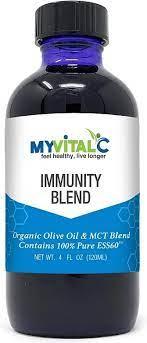It is well documented that taking part in some daily activity benefits the immune system. While we have had to change our training routines here, there are still a number of ways of staying active indoors; many gyms are using technology to bring classes into the home space, online programs by PTs and coaches, and even just having a good old dance around the kitchen to some feel-good tunes. These are all great not just for your physical and mental health, but also maintaining your immune system. However, what you do need to be mindful of is that this is also not the time to stress your body out by overcompensating and training harder or more frequently than you have done before. While it may provide some distraction from the current situation, there are a number of studies that have shown that overreaching the body in this way, can actually depress the immune system. Good nutritional practices are necessary for performance and immune health. While healthy eating guidelines around consuming an increased volume of foods high in antioxidants are important, it also pays to focus your attention on all food groups. One of the key aspects of sports nutrition is tailoring requirements to training needs; so as load and intensity increases then nutritional intake will also need to marry this for an optimal outcome. In addition to food intake, hydration plays a critical role in immune health. Hydration should not be ignored as it encourages the production of saliva which contains high levels of IgA; the body’s first line of defense. (Walsh NP, et al.2011). Herbal tea, no added sugar squashes and flavoured waters can all encourage the consumption of fluid to maintain hydration around and during training sessions; post exercise milk based recovery drinks can encourage rehydration as well as glycogen restoration and muscle repair. (Gleeson, 2016). One of the most important nutrients vital to consume, with regards to maintaining immune health in those that are physical active, is carbohydrate. Ensuring sufficient amounts throughout the day, particularly in high intensity or volume training blocks encourages appropriate fuelling and recovery for the body, preventing, the suppression of the immune system, which can be a result of inadequate fuelling. With many of us trying to maintain some form of training, all be it different to our norm, it is still important to consider your nutritional practices around training, whatever form of shape this takes. As a recommendation, aim for a third of a plate at every meal of wholegrain nutrient dense carbohydrates such as sweet potato, pasta, rice etc. on training days and a quarter plate on non-training days. In addition, leading into higher intensity and longer endurance days, take on more carb based snacks and during endurance training session that are over 90 minutes, aim for 30-60g of carbs an hour.
http://ipsnews.net/business/2022/07/06/myvitalc-immunity-blend-reviews-does-it-boost-immune-health/
http://ipsnews.net/business/2022/07/06/goketo-gummies-reviews-are-the-ingredients-harmful/
http://ipsnews.net/business/2022/07/06/coral-cbd-gummies-reviews-is-this-herb-toxic/
